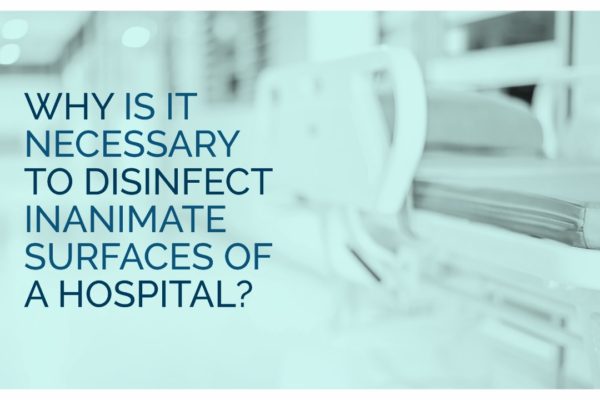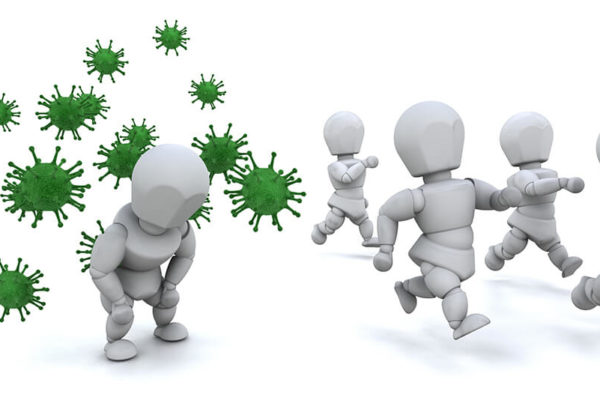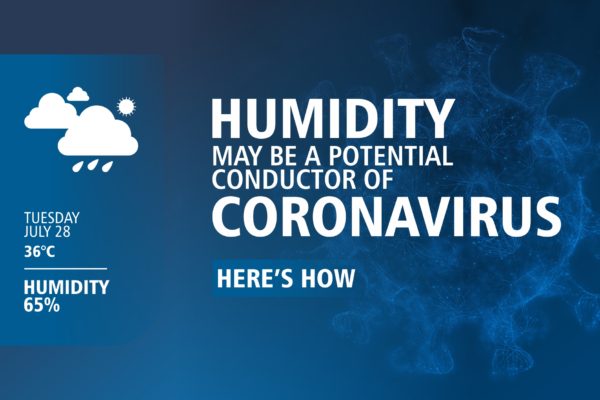Ever since the outbreak of coronavirus, the discussion around ‘disinfection’ has skyrocketed. Many scientists are postulating that non-antimicrobial detergents are sufficient for disinfecting inanimate surfaces of a hospital. On the other hand, many others are suggesting the use of antimicrobial agents is the only way to remove pathogens. Due to these polar opinions, appropriate treatment of the inanimate surfaces of a hospital to prevent the spread of nosocomial pathogens is a subject of ongoing controversy.
Regardless of these divergent opinions, an important parameter that decides treatment of inanimate surfaces is ‘the persistence of nosocomial pathogens on surfaces’.
Before going further, let’s first understand the meaning of the term ‘nosocomial’. Nosocomial disease, pathogen or infection is that which originates in a hospital. Nosocomial pathogens include bacteria, viruses or fungal parasites. During hospitalization, a patient is exposed to pathogens through different sources environment, healthcare staff, and other infected patients.
Persistence of nosocomial pathogens on inanimate surfaces
In a study conducted by MedLine, the following results were occupied:
- Many bacteria (both gram-positive and negative) can survive on inanimate surfaces for months, with humid conditions providing a favourable environment for longer persistence.
- Many nosocomial fungal pathogens can dwell up to 4 months on surfaces. Low temperature, high humidity and presence of serum can add to the persistence duration.
- Most viruses from respiratory tract can linger on surfaces for a few days, while others from the gastrointestinal tract can stay for approximately 2 months. For most of these viruses, low temperature can lead to a longer persistence.
The study came down to conclude that many relevant nosocomial pathogens can persist on dry inanimate surfaces for months. Additionally, factors such as high humidity and low temperature are associated with longer duration of persistence. Yet the question remains:
What is the role of surfaces in nosocomial infections?
In a hospital, the inanimate surfaces with hand contact are often contaminated with nosocomial pathogens and may serve as vectors for cross-transmission. Contaminated hands may spread pathogens to 5 more surfaces or can be a source of recontamination.
For this reason, the disinfection of inanimate surfaces of a hospital plays a vital role in curbing the spread of coronavirus as well as other infectious pathogens. Routine treatment of floors and surfaces in the vicinity of patients need to be disinfected for prevention of further transmission and for controlling and reducing the spread.
How to disinfect the inanimate surfaces of a hospital?
10 years of research after H1N1 breakout and the identification of future fatality led Framtix Holdings AB to invent the much-needed technology for the 21st Century – a solution for the widespread adverse effects of harmful bacteria and germs – EcoBactiX. Numerous nosocomial pathogens don’t get treated by ordinary antimicrobial disinfectants leading to an increased duration of presistence.
EcoBactiX is a safe and longlasting antimicrobial shield, best suitable for a place prone to high pathogenic growth. EcoBactiX is applied on the inanimate surfaces of a closed space as a thin layer using specially designed dispersion technology. The layer not only kills the already lingering pathogens on the surfaces but also controls nosocomial pathogens from spreading, thus makig a hospital safer than ever.
Moreover, unlike other disinfecting agents, this need not be applied everyday. Once applied on a surface, it works actively for as long as 2 years hence contracting the annual mentainance.




